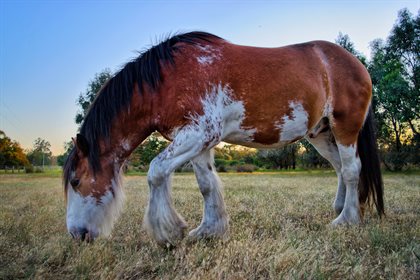|

|
This article first appeared in the May 2022 digital edition of Equestrian Life. To see what's in the current issue, click here.

A ‘hangry’ horse is an unhappy horse
By Ellie Jolley
No one likes being ‘hangry’, least of all your horse. Just like humans, when horses don’t get enough food, they can be irritable and hard to work with. But unlike humans who can return to a happy, contented state after fasting, it can have a far more damaging impact on horses.
A horse’s stomach is an incredibly sensitive and balanced instrument, and when it gets out of tune, the horse is going to let you know about it! This is because when a horse’s stomach is left empty for hours on end, a continuous supply of acid can be bubbling away and burn ulcers in the stomach walls.
The horse is naturally a grass-feeding animal and is designed to be continually eating all day. Millions of years of grazing evolved a stomach that is conditioned to always have something in it. As a result, the upper half of a horse’s stomach (called the non-glandular region) is unprotected from stomach acid, because for countless generations there wasn’t risk of contact because the stomach always had something in it and acid production was not excessive.
“Unlike us, their stomach continuously produces acid whether they're eating or not,” explains Hygain equine nutritionist Holly Mills…
Read the full article in the May 2022 issue of Equestrian Life magazine.

|

|
